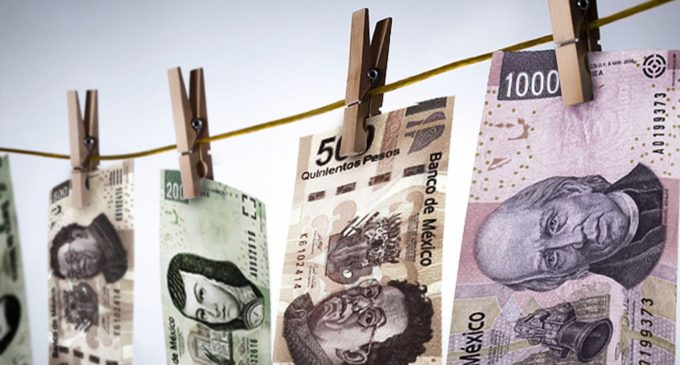Money laundering is the process by which funds or assets generated by illicit activities are linked to legal transactions to circulate in the economic system.
Money laundering is one of the most serious problems in Mexico, in fact, some studies put the country in the third place among those with the largest amount of illicit capital globally in their economies.
What is money laundering?
Money laundering is the process by which funds or assets generated by illicit activities are linked to legitimate transactions so they can circulate legally within the economic system, so their origins cannot be traced—or at least that is the purpose. In Mexico it has three main forms: resources that come from activities related to corruption, those generated by organized crime, and those that go unchecked due to tax evasion.
How it works?
Although this activity has existed almost as long as currency itself, and money laundering methods have become much more sophisticated today, there are generally three phases to its operation:
- PlacementIllegally obtained funds are usually placed within the financial system in the name of someone who makes them appear legitimate. This is the time when they are most susceptible to identification and most vulnerable to financial companies.
- StratificationMultiple transactions are carried out to strategically hide the source of the funds. Capital can be transferred between several accounts or various goods or services bought and sold, which will serve to obscure the source of the money.
- Integration: This is when money is "clean" and has lost its true origin. It is reintegrated into the formal economy as an investment in a profitable business or in the purchase of final goods, and may even be reintroduced into the financial system.
How to combat it?
The sectors most susceptible to money laundering or suspected of engaging in this activity are those related to the financial system or those that handle large amounts of money, such as real estate agencies, luxury goods and vehicle dealers, non-profit organizations that receive donations, brokerage firms, betting firms, among others. Most companies in these sectors They do not know from the beginning that they must comply with standards for preventing money laundering, so they regularly incur in omissions that imply fines ranging from 12 thousand to 4 million pesos., such as notifying the authorities when they detect suspicious activity.
To avoid associating with companies or people whose purpose is to launder their money, strategies for the Prevention of Money Laundering (PLD) must be employed and include processes Customer Knowledge (KYC), which allow companies to prevent, detect and report any movement related to Money Laundering, such as the validation of the identity of their clients and partners, or the creation of digital files to avoid having physical documentation for up to five years as established by the Federal Law for the Prevention and Identification of Operations with Illicit Proceeds in its Article 18.
Our solutions
Fortunately Your Identity has the necessary solutions to implement this type of processes, like our module official identification, fingerprint biometrics, background checks on blacklists, among others.
If you want to know more about our services, do not hesitate to contact us. contact us and schedule a demo.


